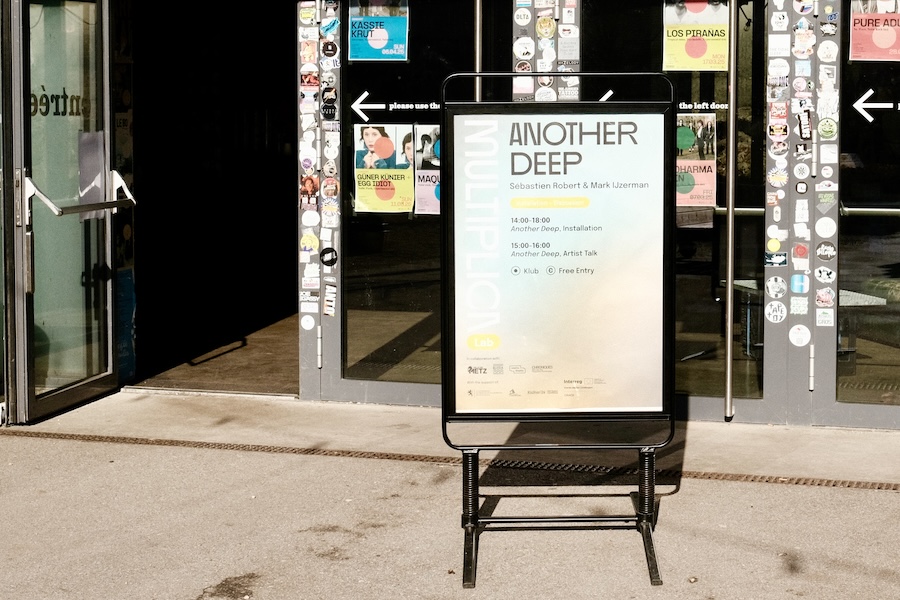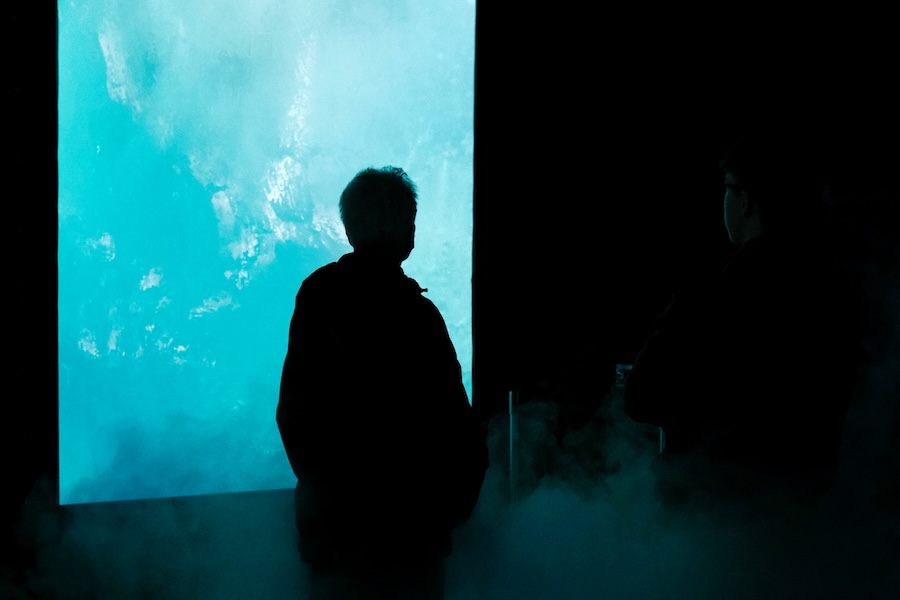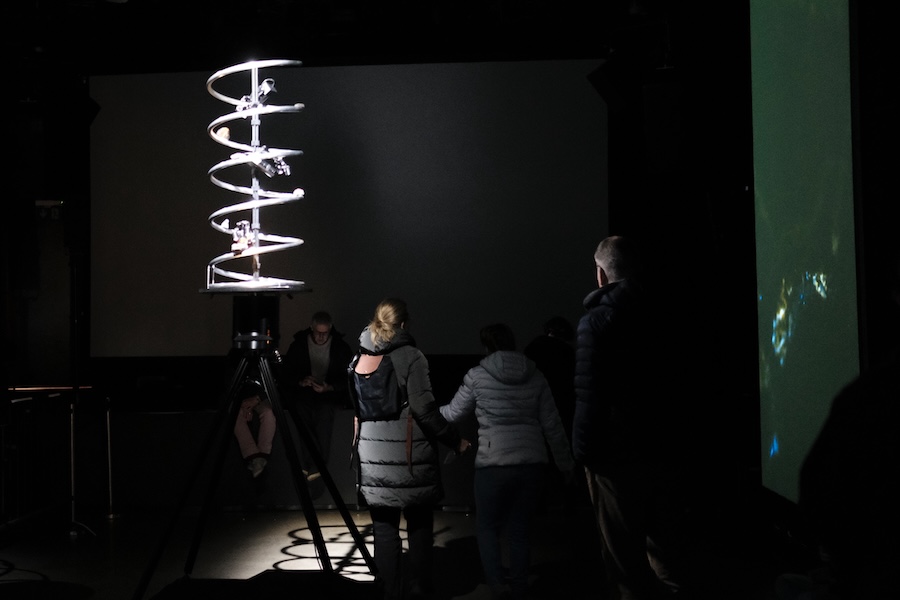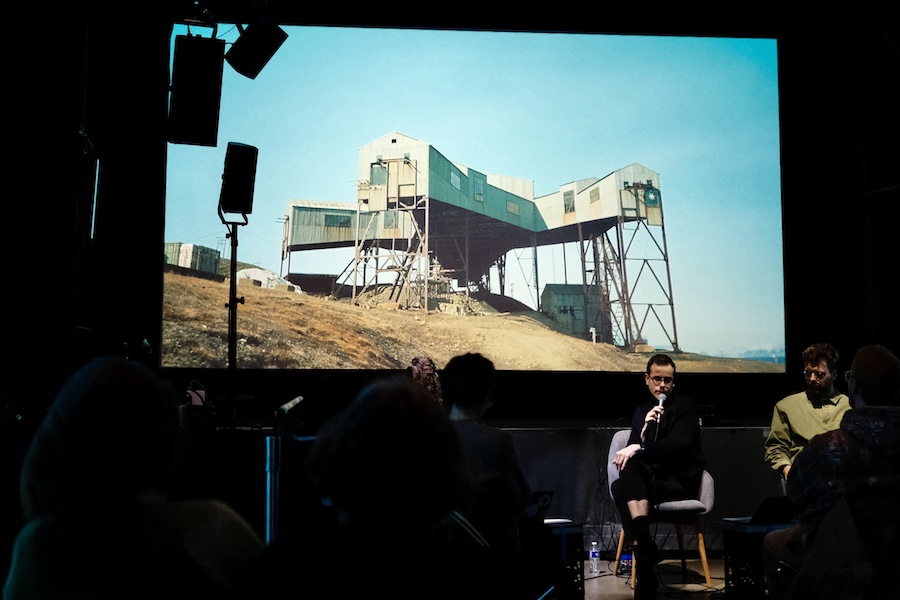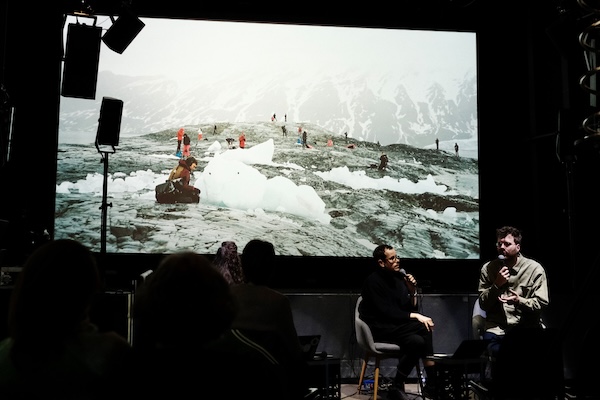 Artists Sébastien Robert and Mark Ijzerman describe "Another Deep";
Credit: Steven Miller, Chronicle.lu
Artists Sébastien Robert and Mark Ijzerman describe "Another Deep";
Credit: Steven Miller, Chronicle.lu
On Sunday 23 February 2025, as part of its Multiplica festival, multi-functional venue Rotondes in Luxembourg-Bonnevoie hosted an audio-visual installation and talk entitled "Another Deep", which looked at the impact of human activity in the arctic.
The art installation, created by French artist Sébastien Robert and Dutch artist Mark Ijzerman, was installed in the Rotondes Club venue and consisted of a series of floor-to-ceiling screens onto which were projected images and videos of the seabed located near Svalbard, Norway, along with animated footage of scientific records of deep-sea fauna from around the arctic circle.
The centre of the darkened room was dominated by a metallic spiral structure covered in pulsing lights and adorned with samples of stones which can be found on the deep sea floor. As the footage played on the screens, a smoke machine was activated, creating an otherworldly atmosphere for those in attendance.
A soundtrack of field recordings featuring the eerie noise of glaciers melting and cracking, schools of beluga whales communicating deep below the water’s surface and various ambient noises of the arctic circle were partnered with pulsating lights to transport those in attendance to an environment experienced by very few.
The purpose of the installation was to bring awareness of the underwater ecosystems which exist beyond the eyes and minds of many and how, because of the impacts of climate change and deep sea mining, it is at risk of permanent damage.
Following the exhibition, Sébastien Robert and Mark Ijzerman gave a talk, describing how they became involved in an ongoing project called "The Arctic Circle", which brings together scientists, educators and artists for an explorative residency near the frozen archipelago of Svalbard, the most northerly inhabited part of Norway. Their participation in June 2023 served as the seed for the creation of "Another Deep".
Both artists described how, as an area which has been subjected to the influence of mining operations since the start of the 20th century, Svalbard provided the perfect backdrop to illustrate how future operations there will irrevocably impact not just the wildlife and the land it inhabits but also the hidden ecosystem which exists beneath the sea.
In an effort to capture life below the surface of the water, they described how they employed the use of an underwater drone and hydrophones (microphones design for recording sounds underwater) to capture the video, images and audio utilised in the exhibition.
Their tales of the dangers of polar bears and the undeniable need for cooperation in such a harsh environment were a reminder of the dangers of the almost alien nature of this environment and reinforced why the heavy industrial actions of previous generations should not be repeated.
However, as the human influence of climate change melts the sea ice and permafrost, opening up new means of access and uncovering a once-covered landscape, plans are already in place to begin new mining operations and the trawling of the seabed in a bid to acquire the rare earth minerals needed in the production of green technology. An irony not lost on the two artists.
The Multiplica festival took place at Rotondes on Saturday 22 and Sunday 23 February 2025. The festival aims to demystify today’s digitalised society through digital works, meetings and participatory workshops.
SM

